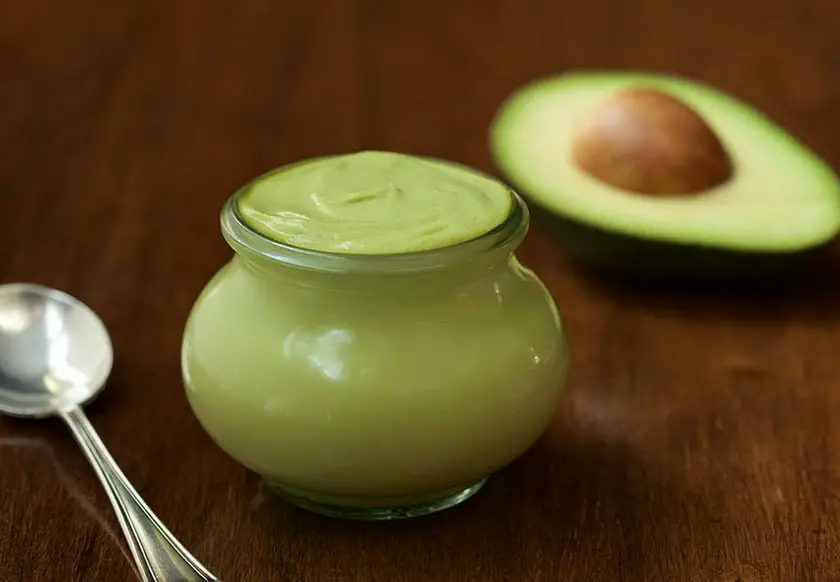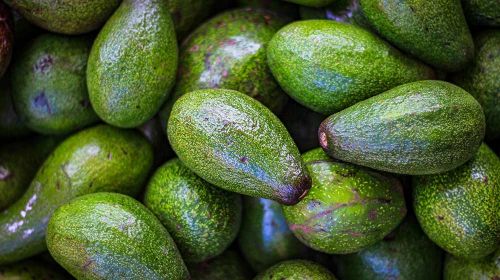Are you feeling fatigued after feasting on avocado toast?
The notion that avocado might be the culprit behind your tiredness has sparked debates among health enthusiasts.
While some swear by the creamy fruit’s ability to boost energy, others claim it leads to sluggishness.
So, what’s the truth behind this avocado-induced weariness?
Let’s explore the science and myths surrounding avocados and their potential impact on your vitality.
Key Takeaways
– Avocado’s healthy fats and fiber provide sustained energy, combating tiredness.
– Balanced avocado consumption supports stable energy levels and prevents fatigue.
– Overconsumption of avocados may lead to sluggishness due to high caloric and fat content.
– Avocado allergies can cause fatigue, emphasizing the importance of proper diagnosis and management.
Avocado’s Impact on Energy Levels
Avocado can influence your energy levels throughout the day, affecting how alert and active you feel. This fruit is a powerhouse of nutrients that can provide sustained energy to keep you going. Avocados contain healthy fats, which are essential for maintaining steady energy levels. These fats are digested slowly, releasing a consistent source of energy into your body. By including avocados in your meals, you can avoid the energy crashes that come with consuming high-sugar or processed foods.

Moreover, avocados are rich in fiber, which helps regulate blood sugar levels and prevents spikes and crashes in energy. This means that incorporating avocados into your diet can help you maintain a more stable energy level throughout the day. The combination of healthy fats and fiber in avocados makes them a great choice for boosting your energy and keeping you feeling active and alert. So, next time you need a nutritious pick-me-up, reach for an avocado to fuel your day.
Nutritional Profile of Avocados
With a diverse array of essential nutrients, avocados offer a well-rounded nutritional profile that can benefit your overall health and well-being. Avocados aren’t only delicious but also packed with vitamins, minerals, and healthy fats that promote various aspects of your health:
1. Rich in Monounsaturated Fats: Avocados are a great source of heart-healthy monounsaturated fats, which can help lower bad cholesterol levels and reduce the risk of heart disease.
2. High in Fiber: Fiber is essential for digestive health and weight management. Avocados are a fiber-rich fruit that can aid in digestion and help you feel full and satisfied.
3. Loaded with Vitamins and Minerals: Avocados contain an abundance of essential nutrients such as potassium, vitamin K, vitamin E, and folate. These vitamins and minerals play crucial roles in supporting your immune system, bone health, and overall vitality.
Incorporating avocados into your diet can be a nutritious way to boost your nutrient intake and support your well-being.
Avocado and Sleep Patterns
Indulging in avocado-rich meals regularly may impact your sleep patterns in surprising ways. Avocados contain high levels of magnesium, a mineral known to promote relaxation and improve sleep quality. Magnesium plays a crucial role in regulating neurotransmitters that are responsible for sleep-wake cycles. By including avocados in your diet, you may experience more restful and uninterrupted sleep.

Moreover, avocados are a good source of healthy fats, which can help stabilize blood sugar levels throughout the night. This can prevent spikes and crashes in blood glucose that may otherwise disrupt your sleep. The combination of healthy fats and fiber in avocados also helps in keeping you feeling full and satisfied, reducing the likelihood of late-night cravings that could interfere with your sleep patterns.
Incorporating avocados into your meals can contribute to a balanced diet that supports overall well-being, including healthy sleep patterns. However, moderation is key, as excessive consumption of avocados or any food can lead to unintended consequences.
Possible Causes of Avocado-Induced Fatigue
Consuming excessive amounts of avocado may lead to feelings of fatigue due to its high calorie and fat content. Avocados are nutrient-dense but are also calorie-rich, which can cause sluggishness if consumed in large quantities. Here are some possible causes of avocado-induced fatigue:
1. High Caloric Content: Avocados are calorically dense, and overeating them can lead to an excessive calorie intake, which may result in feelings of tiredness and lethargy.
2. High Fat Content: Avocados are a good source of healthy fats, but consuming an excessive amount can overload your system with fats, making you feel sluggish and tired.
3. Delayed Digestion: The high fiber content in avocados can slow down digestion, leading to a feeling of heaviness and fatigue, especially if consumed in large portions.
Being mindful of your avocado intake and incorporating them in moderation into a balanced diet can help prevent feelings of fatigue while still enjoying the nutritional benefits they offer.
Avocado Allergies and Fatigue
If you experience fatigue after consuming avocado, it may be due to an underlying avocado allergy. Avocado allergies aren’t as common as other food allergies, but they can cause various symptoms, including fatigue. When you have an avocado allergy, your immune system reacts to the proteins in avocado, triggering symptoms like fatigue, nausea, and even hives. Fatigue can occur due to the body’s immune response working overtime to combat the allergen present in the avocado.

Avocado allergies can sometimes be confused with oral allergy syndrome, where your body reacts to proteins in certain fruits and vegetables that are similar to pollen. This can also lead to fatigue and other symptoms. If you suspect you have an avocado allergy, it’s essential to consult with a healthcare professional for proper testing and diagnosis. Once diagnosed, you can manage your avocado allergy by avoiding avocado consumption and being cautious of hidden avocado ingredients in foods to prevent fatigue and other allergic reactions.
Avocado Consumption Timing Effects
Timing plays a crucial role in how the effects of avocado consumption are experienced. When you eat avocado can impact how energized or tired you feel throughout the day. Here’s how timing can affect your avocado experience:
1. Morning Boost: Consuming avocado in the morning can provide a sustainable energy boost due to its healthy fats, fiber, and essential nutrients. Starting your day with avocado toast or adding slices to your breakfast can help keep you feeling full and focused.
2. Midday Slump: Eating avocado during lunchtime can help prevent the midday energy crash. Its nutrient-dense properties can provide a steady release of energy, keeping you alert and productive throughout the afternoon.
3. Evening Relaxation: Enjoying avocado in the evening can promote relaxation and aid in a good night’s sleep. The magnesium content in avocados can help relax muscles and support a restful night, potentially reducing the likelihood of feeling tired the next day.
Consider adjusting your avocado consumption to different times of the day to optimize its effects on your energy levels.
Avocado-Related Fatigue: Myth or Reality?
Adjusting when you eat avocado may impact your energy levels, but does consuming avocado really make you tired? There is a common belief that avocado consumption can lead to feelings of fatigue, but the truth is more nuanced. Avocado is a nutrient-dense fruit that provides healthy fats, fiber, vitamins, and minerals that are essential for overall well-being. While it is true that fats take longer to digest compared to carbohydrates, leading some individuals to feel sluggish if consumed in large quantities, avocado alone is unlikely to be the sole culprit for feelings of tiredness.

To help you better understand the nutritional content of avocado, here is a breakdown of its key components:
| Nutrient | Amount per 100g |
|---|---|
| Calories | 160 |
| Fat | 15g |
| Carbohydrate | 9g |
Tips for Combating Avocado-Induced Tiredness
To combat any tiredness potentially induced by avocado consumption, consider incorporating other energizing foods into your meals. While avocados offer numerous health benefits, such as being rich in healthy fats and fiber, some individuals may experience fatigue after eating them. To counteract this, try the following tips:
1. Include Lean Proteins: Foods like chicken, fish, tofu, or beans can help sustain your energy levels throughout the day without causing the same tiredness that avocados might trigger.
2. Opt for Whole Grains: Whole grains like quinoa, brown rice, or oats provide a steady release of energy, preventing the sudden crashes that can follow avocado consumption for some people.
3. Incorporate Fruits with Higher Glucose Levels: Fruits like bananas, apples, or berries contain natural sugars that can give you a quick energy boost, helping combat any potential fatigue induced by avocados.
Frequently Asked Questions
Can Eating Avocado in the Morning Make You More Tired Throughout the Day?
Eating avocado in the morning can provide essential nutrients and healthy fats, but consuming it excessively or with heavy meals may lead to fatigue due to its calorie content. Moderation is key for balanced energy levels.
Are There Specific Types of Avocados That Are More Likely to Cause Fatigue?
When choosing avocados, look for ripe ones without dark spots. Some people find that overly ripe avocados may cause fatigue due to higher histamine levels. Pay attention to how your body responds to different types.
Can Cooking Avocados in Certain Ways Reduce the Likelihood of Feeling Tired After Eating Them?
To reduce tiredness after eating avocados, try cooking them in ways that preserve their nutrients. Grilling or baking avocados can help maintain their health benefits. Experiment with different cooking methods to find what works best for you.
Does the Ripeness of an Avocado Impact Its Potential to Cause Fatigue?
When considering if the ripeness of an avocado affects fatigue, remember that ripe avocados can offer more nutrients. However, some individuals may find overripe avocados harder to digest, potentially leading to tiredness.
Are There Any Known Interactions Between Avocado Consumption and Certain Medications That Could Lead to Fatigue?
When you’re taking medication, be cautious with avocado. Some medications may interact with it, potentially causing fatigue. Check with your healthcare provider to ensure your avocado consumption won’t interfere with your medications.
Amazon and the Amazon logo are trademarks of Amazon.com, Inc, or its affiliates.

